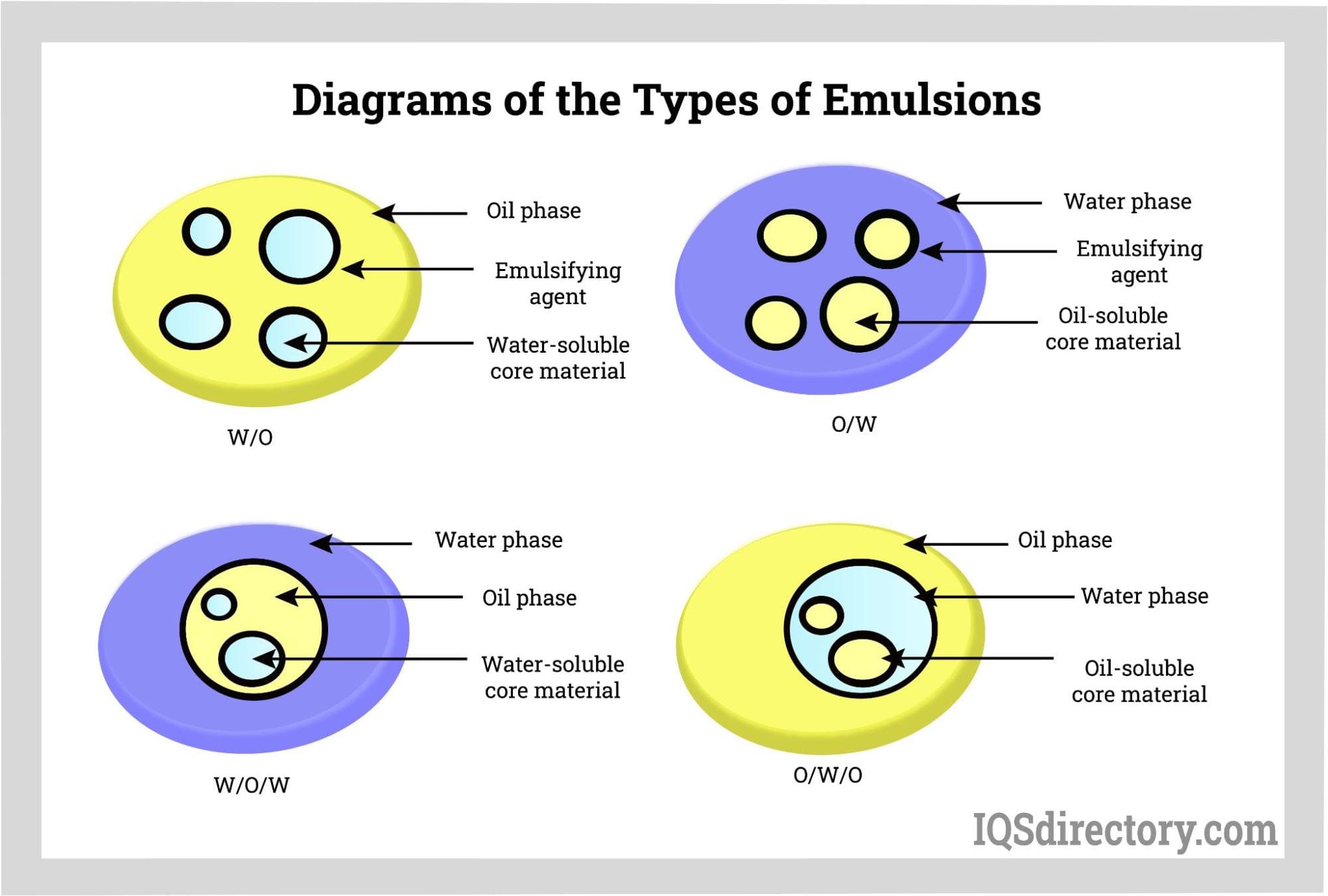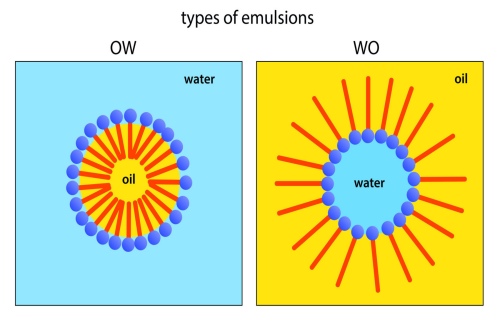The Science Behind Emulsifiers and Their Value in Modern Manufacturing
Emulsifiers play a crucial function in contemporary manufacturing, acting as the unsung heroes that mix oil and water for a wide variety of items. You may not recognize how these compounds boost appearance and stability, but their influence is substantial throughout markets. As consumer choices change towards cleaner labels, the need for ingenious emulsifiers is growing. What does this mean for the future of item formula? Let's check out additionally.
What Are Emulsifiers?
Emulsifiers are vital representatives in the world of food and item production, acting as the adhesive that binds two or else immiscible liquids, like oil and water. Typical instances include lecithin found in egg yolks and soybeans, and mono- and diglycerides utilized in numerous processed foods.

When you whip up a salad clothing or delight in a velvety treat, emulsifiers assist preserve that best appearance. Without emulsifiers, lots of foods would certainly divide, leading to unwanted appearances and tastes.
The Chemistry of Emulsification
When you blend oil and water, you might observe they do not blend quickly; that's where the chemistry of emulsification enters into play. Emulsification happens when small beads of one liquid disperse in another, producing a steady blend. This occurs since oil and water are immiscible because of their differing polarities-- water is polar while oil is non-polar. To overcome this challenge, emulsifiers are employed.
These molecules have a hydrophilic (water-attracting) head and a hydrophobic (water-repelling) tail. When you add an emulsifier, its molecules position themselves at the oil-water interface, reducing surface stress and enabling the droplets to blend. The emulsifier forms a safety layer around each bead, avoiding them from coalescing back right into different layers. Comprehending this chemistry is important for achieving security in items like dressings, creams, and sauces, making emulsification important in modern-day manufacturing.
Sorts Of Emulsifiers
Various kinds of emulsifiers play necessary roles in maintaining blends of oil and water. You'll frequently encounter 2 main groups: natural and synthetic emulsifiers. Natural emulsifiers, like lecithin from egg yolks or soy, are acquired from plants and animals, making them preferred in foodstuff. They're usually thought about more secure and much healthier options.
On the various other hand, artificial emulsifiers, such as mono- and diglycerides, are chemically crafted to boost stability and rack life. They're frequently utilized in refined foods and cosmetic products.
Furthermore, you might come across non-ionic, anionic, and cationic emulsifiers, each with one-of-a-kind properties that affect their performance. Non-ionic emulsifiers, for instance, job well in a broad variety of pH degrees, while anionic emulsifiers often tend to perform much better in alkaline problems. Recognizing these kinds can help you choose the best emulsifier for your particular application.
Mechanisms of Emulsion Formation
Comprehending exactly how emulsions form is vital for creating stable mixes of oil and water. When you introduce an emulsifier, it reduces the surface stress in between the 2 liquids, allowing them to blend even more quickly.
The emulsifier molecules have a hydrophilic (water-attracting) head and a hydrophobic (oil-attracting) tail. When you add an emulsifier, these particles organize themselves at the oil-water interface. The hydrophilic heads interact with water, while the hydrophobic tails secure into the oil. This creates an obstacle that supports the beads, avoiding them from coalescing.
Applications of Emulsifiers in Different Industries
Emulsifiers play right here an important duty across different industries, making your favored foods smoother and a lot more pleasurable. In cosmetics, they boost product appearance and security, making sure a pleasant application experience. Plus, in drugs, they help supply important components efficiently, boosting overall efficiency.
Food Industry Utilizes
While you might not realize it, emulsifiers play an important function in the food industry, improving the appearance, stability, and shelf life of several items (Emulsifiers). They're frequently discovered in salad dressings, sauces, and mayo, helping to blend oil and water for a smooth, regular item. In baked goods, emulsifiers enhance dough handling and retain wetness, causing a better texture and prolonged quality. They're also essential in milk items, where they stabilize emulsions in lotions and ice creams, stopping splitting up. Even in snacks, emulsifiers assist keep crunchiness and stop stagnant flavors. By guaranteeing uniformity and high quality, emulsifiers are substantial to delivering the scrumptious products you delight in on a daily basis, making them a vital active ingredient in modern-day food manufacturing.
Cosmetic Formulas Benefits
When it comes to cosmetic solutions, emulsifiers are important for producing products that really feel luxurious and do efficiently. You'll see that emulsifiers enhance product stability, preventing separation and lengthening shelf life. On the whole, emulsifiers play an essential duty in providing premium cosmetic products that fulfill your beauty requirements.
Drug Applications Overview
In the pharmaceutical industry, emulsifiers are important for developing efficient medicines. You'll locate emulsifiers in numerous dose kinds, like lotions, lotions, and fluid suspensions, enhancing the bioavailability of medicines.
The Effect of Emulsifiers on Item Quality

By guaranteeing steady solutions, you lower the threat of spoilage and extend shelf life, eventually conserving you time and cash. You'll additionally locate that emulsifiers can boost the bioavailability of energetic ingredients in your products, making them a lot more reliable for customers.
In addition, they allow you to develop cutting-edge formulas that satisfy diverse consumer requirements. Whether you're crafting a velvety dressing or a glamorous cream, emulsifiers are necessary for achieving the desired results. Basically, by comprehending and leveraging the impact of emulsifiers, you can significantly raise the high quality of your products.
Future Trends in Emulsifier Growth
As the need for cleaner tags and sustainable products rises, the growth of brand-new emulsifiers is established to develop considerably. You'll notice a change in the advice direction of plant-based and natural emulsifiers, driven by customer choices for components that are environmentally friendly and much less refined. Innovations in biotechnology will likely boost the performance and effectiveness of these emulsifiers, allowing suppliers to produce stable solutions with fewer ingredients.
You might also see a boost in multifunctional emulsifiers that not only maintain solutions however also boost flavor, appearance, or nutritional worth. This pattern can streamline component checklists while enhancing product efficiency.
Furthermore, with advances in nanotechnology, emulsifiers might be crafted at the molecular level to attain unmatched security and efficiency. Emulsifiers. As you discover these fads, you'll locate that the future of emulsifier growth is not almost functionality, yet also regarding accepting sustainability and openness in components
Frequently Asked Inquiries
Are Emulsifiers Safe for Consumption in Food Products?
Yes, emulsifiers are usually secure for usage in food. They've been extensively researched and approved by food security authorities, so you can appreciate your favored foods without fretting about their effect on your health.
Can Emulsifiers Be Derived From Natural Resources?
Yes, you can derive emulsifiers from natural sources. Components like lecithin from egg yolks or soybeans and casein from milk prevail. These natural emulsifiers help support combinations without synthetic additives, making them popular in different items.

Exactly How Do Emulsifiers Influence Service Life of Products?
Emulsifiers maintain blends, preventing splitting up and spoilage - Emulsifiers. By preserving uniformity, they prolong items' life span, guaranteeing quality and quality. You'll observe that emulsifiers help keep your favored foods and cosmetics carrying out well over time
What Are Possible Side Results of Emulsifiers?
You might experience digestive system issues when consuming products with emulsifiers, as they can interfere with gut microorganisms. Some research studies recommend possible links to inflammation or allergic reactions, yet much more research study is required to fully comprehend these impacts.

Exist Alternatives to Standard Emulsifiers?
Yes, there are choices to standard emulsifiers. You can explore choices like all-natural periodontals, starches, or lecithin. Each different offers one-of-a-kind buildings, so experiment to locate what jobs best for your certain application.